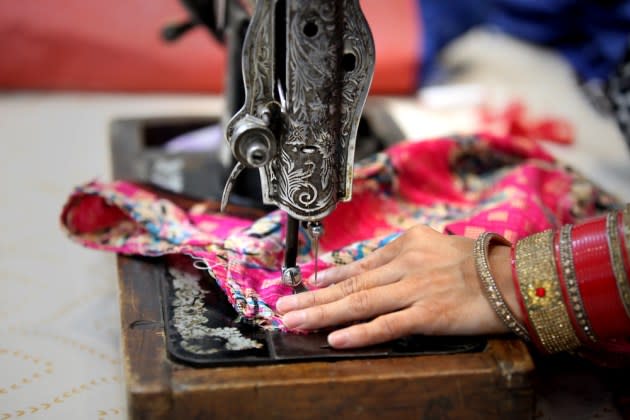Fair Wear, GoodWeave Link Arms to Fight Child and Forced Labor

The Fair Wear Foundation and GoodWeave International have teamed up to tackle child and forced labor in the less-scrutinized informal portions of apparel and textile supply chains.
Fair Wear member brands sourcing from India are encouraged to become GoodWeave licensees so that they can take advantage of the nonprofit’s supply chain mapping, inspection, remediation and prevention programs for child, forced and bonded labor in sub-contracted and home-based worksites, where, unlike first-tier factories, some of the worst forms of exploitation are frequently hidden from view.
More from Sourcing Journal
Lululemon's 'Conundrum' Casts Doubt on Forced Labor Disclosure Laws
Canada is Investigating Ralph Lauren After Forced Labor Complaint
GoodWeave will also serve as a knowledge partner for Fair Wear and as a resource for member companies on child, forced and bonded labor identification, remediation and prevention. With the advent of the European Union’s mandatory human rights due diligence legislation, both organizations said, their combined expertise will be “even more relevant” for companies seeking to respect human rights.
“We are pleased to collaborate with GoodWeave to further advance our member companies’ human rights due diligence efforts,” said Suhasini Singh, head of supply chain engagement at the Fair Wear Foundation, a multistakeholder organization whose roster includes brands such as Ganni and Filippa K. “We’ve successfully worked together on a previous project and chose to continue partnering with GoodWeave given their expertise in stopping child labor and creating supply chain visibility specifically related to subcontracted and home-based worksites.”
GoodWeave, which Nobel Peace Prize laureate Kailash Satyarthi founded in 1994, started in the rug industry before expanding into home textiles, apparel and jewelry. Over the decades, it has rescued more than 9,700 children, directly provided educational opportunities to more than 46,180 children and deterred hundreds of thousands of them from entering labor. In February, the organization formed a partnership with Asos to employ its GoodWeave standard, which it says helped protect 92,200 workers in 2022 alone, across three of the e-tailer’s apparel and accessories suppliers in India.
Roughly 67.5 million home workers, 53 percent of whom are women, are believed to reside in Bangladesh, India, Nepal and Pakistan, according to Women in Informal Employment: Globalizing and Organizing, though the exact number is tough to peg due to the dearth of census data. The International Labor Organization estimates that 2 billion workers, or more than 60 percent of the world’s adult labor force, are involved in informal work at least some of the time. In some countries, they can toil for as little as 15 cents an hour making or finishing clothing destined for the United States and Europe. The economic fallout of the Covid-19 pandemic has increased their precarity, a 2022 report found.
“GoodWeave and Fair Wear Foundation’s work is very aligned, and we both focus on collaborative partnerships with buyers and exporters, which makes this a great fit,” said Silvia Mera, senior director of strategic partnerships and advocacy at GoodWeave International. “We look forward to continuing our work together and to serving as a resource for apparel and textile companies looking to improve their human rights due diligence.”
